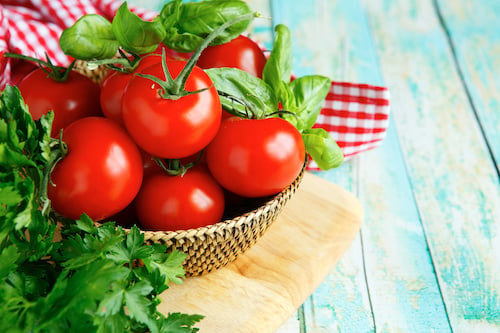
Whether you’re a first-time college student or you’re returning to school after a break, chances are you’re facing a difficult choice: what should you study?
Kansas State University Olathe offers a wide variety of classes, certificate programs and degree options to meet your needs regardless of your career goals.
For students interested in urban food and horticulture, we have several options available, including a graduate certificate in urban food systems and a master of science in horticulture with an urban food systems emphasis.
Tricia Jenkins, Ph.D., is a teaching assistant professor in urban food systems at K-State Olathe. She sat down with us to talk a little more about what urban food systems programs we offer — and what potential students can expect.
What’s special about the urban food systems program at K-State Olathe?
What we’ve been finding is that a lot of the urban foods and sustainable food systems programs are housed in schools of public health or social science departments. This is an important part of urban food systems, but our program is based in the College of Agriculture and a horticulture program, which is uncommon.
Our program enables students to learn production techniques and develop a deep understanding of horticulture as it pertains to urban food systems. They also learn about the social science aspect of urban food systems, including the importance of urban food growing for food security. So, students do both in our program, which is very unique.
What kind of student should pursue a career in urban food systems?
Students who choose to pursue careers in urban food systems have a lot of options, which means these programs can work for a variety of students depending on what track they want to do and what career paths most interest them.
If a student is interested in research and wants to pursue a career either in academia or outside of academia working for a private company, this is a great track. They can be a graduate research assistant, assist in organizing experiments and focus on collecting data in their field of interest.
What’s great about our program is that it’s so multidisciplinary, so students can get the urban food systems curriculum, but also gain experience in a research discipline of interest, such as postharvest physiology, controlled environment and microbial food safety. They’ll also gain real-world production experience through the field study courses. It’s really diverse in the research offerings, and all of those masters' students get to work together on projects and get experience with what it is like working in a multidisciplinary research environment.
The professional track is more geared toward those folks who may want to work in the nonprofit sector or public sector doing project management. I’ve been noticing that municipalities and counties have been hiring more urban agricultural folks and are trying to help the food system value chain, so our professional track will provide a good background for those types of positions.
What drew you to urban foods?
I was trained in postharvest physiology in fruits and vegetables, so my Ph.D. work here was focused on the nutritional content and fruit quality around grafted tomatoes. That’s a common production technique that Cary Rivard works with out at the research farm. Tomato grafting is a method used for improved yields.
We focus a lot on small-acreage growers and helping them come up with solutions that can benefit them. I’m also trying to explore other ways we can work with small farms with sustainable postharvest options that can work better for them. Many of them are concerned about sustainability, but cost can be prohibitive to have good postharvest facilities.
In my research here, I want to help look at new solutions, especially focusing on sustainability and increasing shelf-life. This will benefit both growers and consumers.
You’re in the unique position of being the first doctoral student who has continued to become faculty at K-State Olathe. What was your journey like?
Sometimes it still feels surprising that I’m here as faculty now! I actually started as a master’s student back in 2018 and went straight into the Ph.D. program. I really liked it a lot, especially the research. When I was finishing my Ph.D. I was considering my different options. Eleni Pliakoni, Ph.D., actually had a post-doc opportunity here and I was very interested in that. I stayed another year as a post-doc and we spent a lot of time working together. She’s been the biggest advocate for me, and I owe her a lot.
Honestly, it still all feels really crazy. I don’t think a lot of folks go straight from their Ph.D. into the faculty at the same university, but this is honestly a place where I want to be. I love the area, the research and the other faculty members. I feel very, very lucky to be here.
Tricia Jenkins, Ph.D., is a teaching assistant professor in the School of Applied and Interdisciplinary Studies at K-State Olathe. Learn more.
If you’re interested in urban food systems, be sure to register for upcoming webinars on our M.S. in horticulture with an emphasis in urban food systems.
This program is supported with funding provided by the Johnson County Education Research Triangle.
Explore urban foods at K-State Olathe
Expand your role in an industry that affects the well-being of every life around the world. From the beginning of time, the production and safe distribution of food has been fundamental to survival.


